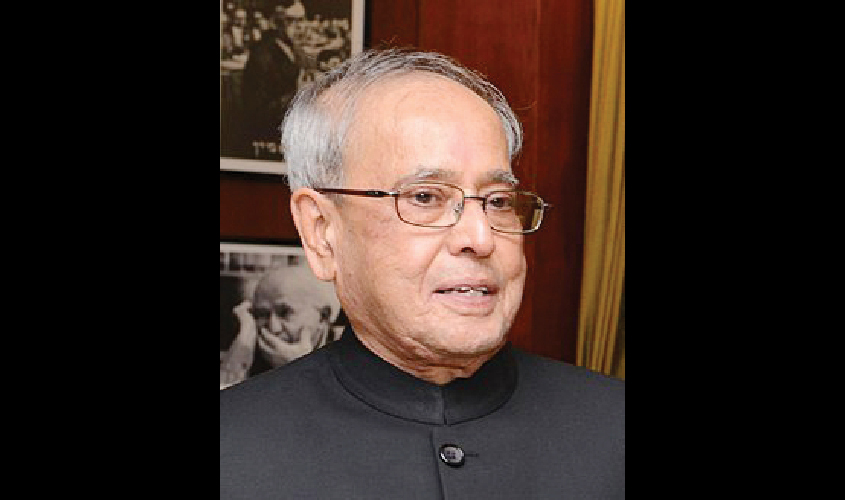Three key takeaways from the Nagpur show of 7 June.
The brouhaha over Pranab Mukherjee’s Nagpur visit has thrown up three significant takeaways. First, the former Rashtrapati, who as per his Twitter handle is now @CitiznMukherjee, emerged as a statesman who can withstand pressure and hold his ground and say what he seeks to say. Speculation would have us believe that he has positioned himself as a consensus choice for Prime Ministership in 2019 if Narendra Modi fails at the hustings (which is a big IF). Second, RSS shed its introvert character and came out shining under the strobe lights to showcase its discipline as well as acceptability beyond the pale of what has come to be known as the Sangh Parivar. It offered its highest podium for a discourse in which Jawaharlal Nehru was quoted and not disparaged. And third, Congress under the Sonia-Rahul dispensation showcased its intolerance to contrary thought and went against the intrinsic nature of Nehruvian altruism: Though differing with Subhas Chandra Bose’s strategy, Nehru had put on his barrister’s gown to defend the INA men at Red Fort—asked how he was defending Bose’s men, he had said that while he may not agree with their point of view he will defend their right to say whatever they wish to say. On 7 June, RSS opened its windows to contrary thought; Congress initially advertised its poverty of thought and then made a U-turn to say Mukherjee had “shown the mirror” to RSS—the second stance reflected the party’s inability to fathom and anticipate political crosscurrents.
Sarsanghchalak Mohan Bhagwat, broke RSS tradition (which entails that the chief has the last word in the meetings) and addressed the trainees ahead of Mukherjee (Rashtrapati Bhavan protocol requires that President or ex-President be the last speaker in any function). “RSS is RSS; Dr Pranab Mukherjee is Dr Pranab Mukherjee”, said Bhagwat, thereby setting the trend for an open discourse. The credit for getting Mukherjee over to Nagpur to a great extent goes to Nitin Gadkari, who has emerged as a minister with a progressive and resurgent outlook in the Modi Cabinet.
By emphasising that unlike Europe’s nation states India’s nationhood is not anchored on one language, one religion but “perennial universalisalisation of its 1.3 billion people who use more than 122 languages, 1,600 dialects and practice seven major religions” Mukherjee stood diagonally opposite to the pronouncement of the RSS founder Keshab Baliram Hedgewar, who professed that “Hindustan is of Hindus like Germany of Germans”. Eyebrows have been raised at Mukherjee describing Hedgewar as a “great son of India” while signing the visitors’ book—Hedgewar was initially a Congressman. Even after forming RSS in 1925 he attended AICC sessions till early 1930s, until objection was raised on the presence of RSS in Congress meets.
Mahatma Gandhi visited an RSS camp in Wardha in 1934 and was impressed that Hindus belonging to all castes lived together without any untouchability. He praised it then and again on 16 September 1947, while addressing RSS workers in Delhi. On 20 November 1949, after the post-Gandhi assassination ban was lifted, addressing Milad Mehfil in Mungher, Bihar, Dr Zakir Hussain contested the view that RSS spread hatred towards Muslims.
Indira Gandhi and Sanjay Gandhi were in dialogue with the RSS during the Emergency after Balasaheb Deoras appreciated the Emergency in writing. Former Intelligence Bureau chief T.V. Rajeshwar has noted in his book that Mrs Gandhi almost met Deoras but shied away at the eleventh hour. Rajiv Gandhi revived the dialogue with RSS: Balasaheb’s brother and lieutenant, Bhaurao Deoras was in constant touch with him. The Babri lock was opened and shilanyas done in Ayodhya on 11 November 1989 on the advice of Deoras.
There were two occasions when the RSS stood by Indira Gandhi. When Jagannath Puri priests opposed a visit by Indira Gandhi as she was married to a “non-Hindu”, Balasaheb Deoras openly backed her right to worship. On another occasion, when Mrs Gandhi offered prayers at Rameshwaram and the RSS mouthpiece’s editor, K.R. Malkani described that as an “election stunt”, Deoras chided the publication.
The Congress Chief Minister of erstwhile Madhya Bharat, Ravi Shankar Shukla in 1952 sought Golwalkar’s help in handling the trouble in the tribal areas of Chhattisgarh. RSS activist Ramakant Keshav Deshpande was assigned to it and this ultimately gave birth to the Vanvasi Kalyan Ashram in Jashpur.
These aspects of Congress history were ignored by the likes of Ahmed Patel, Jairam Ramesh, Anand Sharma etcetera while trying to advise a senior statesman like Mukherjee how he ought to conduct himself. The reaction of Sharmistha Mukherjee, who lost her deposit in her home constituency in the Delhi Assembly poll was in sharp contrast to that of her brother Abhijeet, who had won West Bengal Assembly seat from Nalhati prior to succeeding his father in the Lok Sabha from Jangipur: he was among the 44 Congress winners of 2014. Abhijeet stayed away from limelight. It’s said that rumour mill was activated to force Mukherjee’s daughter to hog the headlines, criticising her father. The way in which the Congress leadership perhaps cajoled a daughter to deride her father speaks volumes about intolerance in the party.

